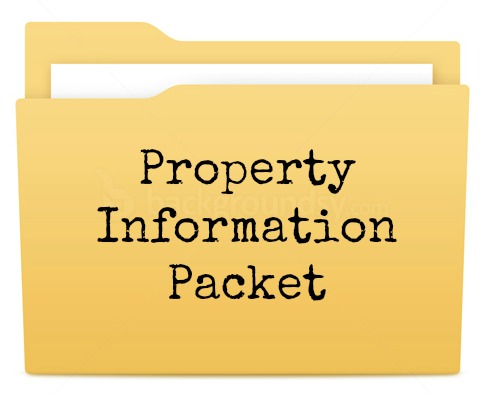A Good Question
 Have you ever asked an appraiser if they could come in at a certain value on an appraisal? Believe it or not, I received a call this week where I was asked if I could provide a low appraisal value. For purposes of our discussion today it doesn’t matter that I was asked to come in low, but for the record most sellers and people that refinance want a high appraisal, however, there are fewer occasions when people want it to come in low. I decided to write about this because there still seems to be some confusion as to how the appraisal process works and what the appraiser can do.
Have you ever asked an appraiser if they could come in at a certain value on an appraisal? Believe it or not, I received a call this week where I was asked if I could provide a low appraisal value. For purposes of our discussion today it doesn’t matter that I was asked to come in low, but for the record most sellers and people that refinance want a high appraisal, however, there are fewer occasions when people want it to come in low. I decided to write about this because there still seems to be some confusion as to how the appraisal process works and what the appraiser can do.
It’s understandable that you feel your home’s value may be higher or lower than typical. There are some legitimate reasons for this like the fact that your home is on a premium lot or has more square footage than normal. There are also reasons to think that your home should appraise for less than normal due to its poor condition or adverse location. There’s also some unacceptable reasons for requesting a certain value for your appraisal because they are not supported by market data.
In this post, I’m going to explain to you the role of the appraiser and what you can do to help them provide the most accurate appraisal possible, whether that provides you with a high appraisal or a low appraisal. After reading let me know your thoughts by leaving a comment below.
What’s The Appraisers Job?
The appraiser’s job is to provide an unbiased opinion of value for a parcel of real estate that is supported by market data. Some people like to minimize an appraisers job by saying that the value is “just their opinion” but it is important to keep in mind that their opinion is based on market data. It’s one thing to give an off the cuff estimate of what something is worth but quite another to provide a value that is backed up by reliable market data that can be verified and agreed upon by industry peers.
data. Some people like to minimize an appraisers job by saying that the value is “just their opinion” but it is important to keep in mind that their opinion is based on market data. It’s one thing to give an off the cuff estimate of what something is worth but quite another to provide a value that is backed up by reliable market data that can be verified and agreed upon by industry peers.
The appraiser collects accurate physical data about the property being appraised, as well as other information such as lease agreements if the property is income producing, and then performs research on recent sales, listings, and cost data to arrive at their appraisal value estimate. The value is a reflection of what is occurring in the subjects market area.
The appraiser is an important component of the real estate industry because they provide an educated and unbiased opinion of market value that is used to make important financial decisions.
What You Can Do To “Influence” The Appraisal Value
Do you want to know what you can do to “influence” the appraisal? Don’t worry, I’m not going to suggest that you do anything illegal. What I am suggesting is that you provide the appraiser with as much accurate data about your house as possible. It’s this accurate data that will help the appraiser provide the most accurate appraisal report.
If you think the appraisal value should be high then provide the information to support that. I always suggest to agents that they provide the appraiser with an information packet that includes past updates and renovations, including costs if you have them. Cost does not always equal value, however, by looking at the work done and the cost the appraiser can get an idea of the level and quality of work.
 Something else that can influence the appraiser’s opinion of value on a purchase is contract activity. Most areas in the country are seeing record low levels of inventory and made it a seller’s market. If there are multiple contracts on a home the agent should be sharing this with the appraiser.
Something else that can influence the appraiser’s opinion of value on a purchase is contract activity. Most areas in the country are seeing record low levels of inventory and made it a seller’s market. If there are multiple contracts on a home the agent should be sharing this with the appraiser.
Because appraising looks at historical sales that can lag with current demand it is important to look at what is happening right now. One of the easiest ways to do this is to look at multiple contracts on the subject property if there are any. Due to limited inventory some homes are selling at the top end of the range and knowing about multiple offers can help to support the higher contract amount.
On the other hand, if you think your home should be appraised at the low end then explain to the appraiser why you think this. If your home has termite damage, foundation issues, or a bad floor plan then let them know if it is not readily apparent. An appraiser cannot randomly assign a low value to a home but if it can be supported by market evidence then it may impact the value.
Unacceptable Reasons For Asking For a High or Low Appraisal Value
So far I have provided you with several legitimate ways to inform the appraiser of why you think your home should be appraised high or low. The suggestions focused on providing complete information about your home that may impact its marketability and saleability.
Now I want to discuss some reasons that are not acceptable. These usually have to do with things that are not market supported and cannot be proven to influence value.
I’ve heard owners say that they are listing their home for a certain amount because that is what they need to pay off the mortgages they have. This amount may or may not be supported by current sales activity. If it is higher than what is reflected in the market then the home can be overpriced. This can result in it not selling and sitting on the market for too long.
Some people want a low appraisal because it benefits them in their estate taxes or for some other reason. Again, this is not a legitimate reason because it may contradict market data that suggests a higher value.
Another situation I have found is that when doing appraisals for divorce reasons the party buying out the other wants a low appraisal and the one selling their interest wants it on the high end. These are reasons that are personal and may not be supportable with market data.
So, you can see there are some genuine reasons for believing that your home should be appraised either high or low but they must be supported by the appraiser with hard facts and market data. If you are in a situation like this I would suggest you have information that you can share with the appraiser to back up your beliefs rather than just thinking it should be high or low.
Question
So there you have it. I’ve provided for you several ways you can have an influence on the appraiser’s opinion of value in an appraisal. Of course, they have the final say so but information that you provide to them can help them provide the most accurate appraisal report whether it is low or high. As always thanks for reading.
If you liked this post subscribe by email (or RSS feed). Thanks for visiting.
Can I use an out sider appraisanl / If i can it would be & 300. $ cheeper. Please don’t bombard me with any real estate co. Thank yu for your time.
The bank or lender usually requires you to use their appraiser but you can always ask them.
Tom, I do have a situation of multiple offers, seller accepts one, then after inspection buyers opt out based on inspection. Now buyer has accepted an offer OVER asking price. My real questions is it ok to send the offers to the appraiser without consent of the offeror?
That’s a great question that I’ve never been asked. I would think that as long as the names are redacted it should be ok.
Great post Tom. Motivations are funny for folks, especially as your appraisal business moves away from lending. I get dueling motivations for divorce and appraisals for family members selling to other family members. Once I explain that I’m not risking my license for one report, most folks understand.
I enjoyed your article, as always. I appreciate the points you made about ways to influence an appraiser in ways that are ethical. So true! I use survey monkey to send out a Q&A with some multiple choice questions in combination with some areas a borrower can fill in to describe their improvements. Thanks for a great article!
Thanks, Jamie. Good to read that you’re having a positive experience with the Survey Monkey Q & A form. Thanks for reading and keep up the great work on your blog as well.
Thank you so much!
I get asked all the time to do a “low” appraisal. I always come back to say, “I have to be realistic and not high or low.” I find in divorce situations there is often one member of the relationship who wants a high value and one looking for a low value.
I agree, Ryan. Interesting to see that you’ve had similar experiences as I have had and especially with divorce appraisals.
Great post Tom. One thing that I have wanted to do for years, but never got around to, is setting up an email questionnaire to send out to the homeowner on each and every new appraisal order that I receive. I’d request that the homeowner fill it out and email it back, or print it and have it ready when I arrive to do my inspection. The questionnaire would ask questions on new improvements, repairs, any recent listings, and anything else they may want to disclose to me including recent sales in the neighborhood that they are aware of. If they don’t fill it out and complain about the appraisal later then I would ask what they did not respond with important information that was requested from them.
That is a great idea, Tom, I believe Bill Cobb does this. It makes sense and gives the owner the time to think about things. Seems like when I ask them during the inspection they cannot think of everything and end up calling me back.
Abdur Abdul-Malik has a formal survey his staff sends to each property contact during the scheduling process. It helps him offload the scheduling piece to (remote) staff and gives him detailed info about the subject.
I don’t have my act together enough to be this formal.
That’s interesting, Joe. I really don’t have my act together enough for that either :-). I can see where it would be helpful and give the owners a way to share all the pertinent information about the property.